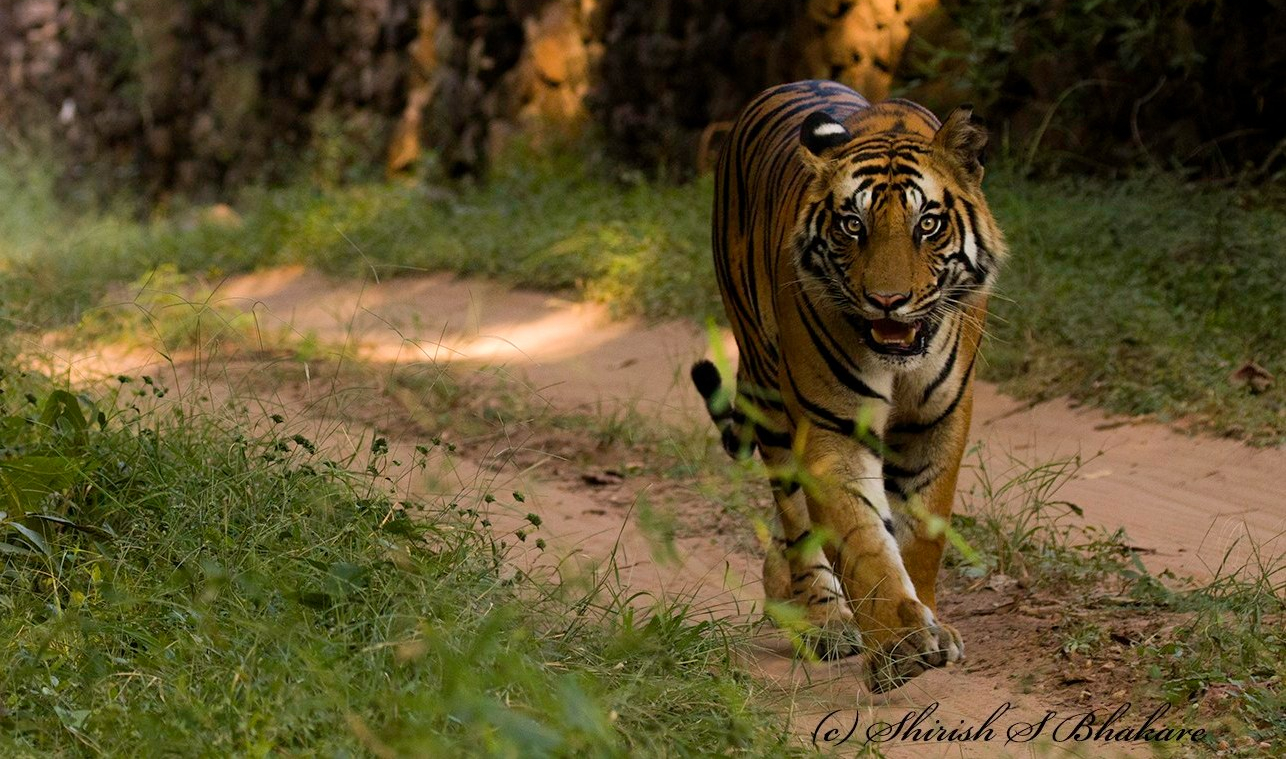I was pondering what my first blog should be.. I realised majority of us living in concrete jungles have never been to forests with the intent of exploring the forest. Living in concrete jungle means we are used to a routine life of certain luxuries, comfort and safety which of-course is not the case when you are in jungles. Every time I meet someone who is a concrete denizen, someone who has never seen wild tiger, the first question they ask, “Doesn't the tiger attack? Aren’t you scared?”

Let me answer the second one first.
I have an affinity for jungle and love for nature which comes as a gift from my father. My father, now a retired civil servant, used to spend his weekends in Jungles along with my mother and my sisters. 25 years ago, most tiger reserves of today were accessible at night even in core areas. We used to reach the forest by evening, have early dinner and scan forest at night with search lights. Trust me it was tiring stuff staying awake till wee hours of morning. I can vouch for this because everyone in the car used to be fast asleep during night searches except me and my father. He used to be behind the steering of a jeep or an ambassador and me in the shotgun seat throwing the search light into the bamboo & teak thickets. It was a full night safari which is next to impossible now, thanks to rules and regulation set to protect our heritage of wildlife. Our objective during night safaris was tracking elusive cats of Central India.
So spending nights in jungle to track tigers and leopards became a way of life. I was hardly 7 to 8 years when I started. Thanks to my father, I’m not scared of spending time in jungles tracking animals.
Coming to first question, “Doesn't the tiger attack?”

The answer is a big NO. Humans are not natural prey of tigers. Tigers do not hunt humans for food (exception of Sunderbans). Normal tigers will shy away from humans and avoid them. However every animal, including humans have proxemics, comfort zones. If you enter their comfort zone, you are not so safe.
If the tiger feels you are too close it will give you a warning. Signs like flattened ears, showcasing canines with lowered head and direct gaze. If signs are not read, tiger will go to the secondary level of mock charge with growl. Most cases after mock charges, the tiger itself will back out from confrontation. I have never heard of a tiger attacking tourists during safari.
Tigers are highly territorial and have strong sense of personal space. Tiger kills only in self-defence when threatened, or a tigresses does so in defence of her cubs.
Our greed for resources and development have led to cutting off of huge tracts of forests. Simultaneously, tiger numbers are also increasing in most tiger reserves of India. With no place to go for tigers, confrontations with humans are unavoidable leading to increase in man-tiger conflicts ultimately resulting in loss of precious life of humans and tigers. Lose-Lose situation for all of us.
For me, tiger is the most enigmatic animal one can get to see in wilds of India. Tiger is the apex predator in the food chain who kills only when hungry. Unlike humans, they don't misuse their power to horde resources (food) for entire life span.
A lesson humans must learn from the animal.
